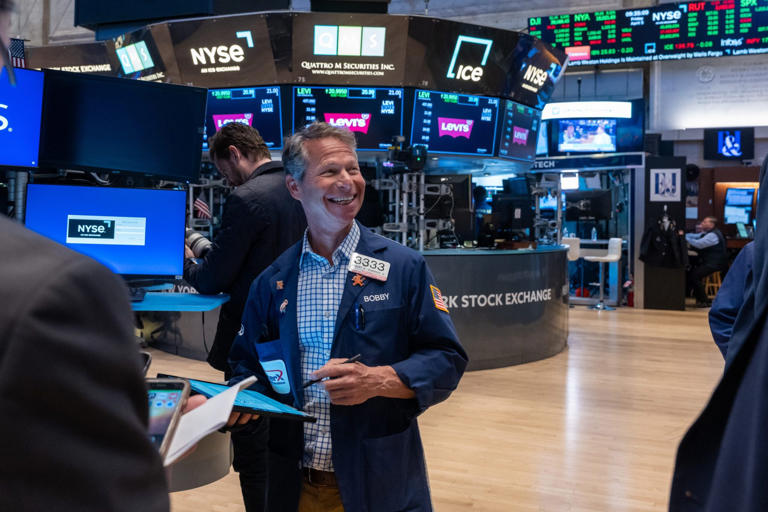The surge in technology stocks, propelled by investors’ enthusiasm for artificial intelligence (AI) technologies, has been remarkable both in the U.S. and globally. Indices like the iShares MSCI AC World Information Technology Index, which tracks large- and mid-cap tech stocks across numerous developed and developing markets, have seen gains exceeding 20% over the past year. Similarly, the Invesco QQQ Trust Series 1 ETF, focusing on large-cap U.S. tech stocks, has soared by nearly 40% over the same period.
Despite this impressive performance, a slight downturn in U.S. tech stocks last week has sparked discussions on Wall Street. Solita Marcelli, chief investment officer Americas at UBS Global Wealth Management, emphasized that corrections are natural in financial markets, signaling that the AI-driven tech rally isn’t immune to fluctuations. Rising geopolitical tensions and changing forecasts for U.S. interest rate cuts, prompted by stronger-than-expected labor market data, have weighed on tech shares. However, Marcelli maintains a positive view of AI-related stocks, citing robust AI fundamentals and anticipated earnings growth for global tech in 2024.
Marcelli identified three key reasons for her optimism on AI stocks. Firstly, she anticipates the launch of revolutionary AI products across various industries. Since OpenAI released its chatbot ChatGPT in November 2022, there’s been a rush to develop new AI products. Generative AI has facilitated the emergence of platforms like OpenAI’s Sora and Stability AI’s Audio 2.0, with applications ranging from healthcare to software engineering.
Secondly, evidence suggests increasing AI adoption, with companies and governments worldwide embracing AI technologies to enhance efficiency and competitiveness. Marcelli highlighted sovereign entities such as Sweden, Singapore, Japan, and South Korea as significant sources of incremental demand for AI solutions.
Erika Klauer, a technology equity portfolio manager at Jennison Associates, echoed Marcelli’s views, emphasizing governments’ desire for customized AI solutions. Larry Ellison, chairman and chief technology officer of Oracle, disclosed negotiations with several countries and sovereign regions to deploy government applications on the cloud, including AI.
Marcelli also pointed to recent surveys indicating a rising percentage of companies using AI, particularly in the tech sector. While only 5.4% of U.S. companies used AI in the first quarter, according to the U.S. Census Bureau, Marcelli predicted a potential increase to 6.6%-12% over the next six months.
However, AI-related companies face a significant threat from a hawkish Federal Reserve. Despite earlier expectations of interest rate cuts, multiple inflation reports and strong labor market data have raised concerns about the Fed delaying rate cuts until July. Tech stocks, perceived as higher-risk assets, could face pressure if rates rise, especially given elevated market multiples and rising bond yields.
Amidst these uncertainties, the appeal of AI-related investments persists, driven by the transformative potential of AI technologies. While challenges remain, the broader AI theme continues to offer opportunities for growth and innovation in the tech sector.
